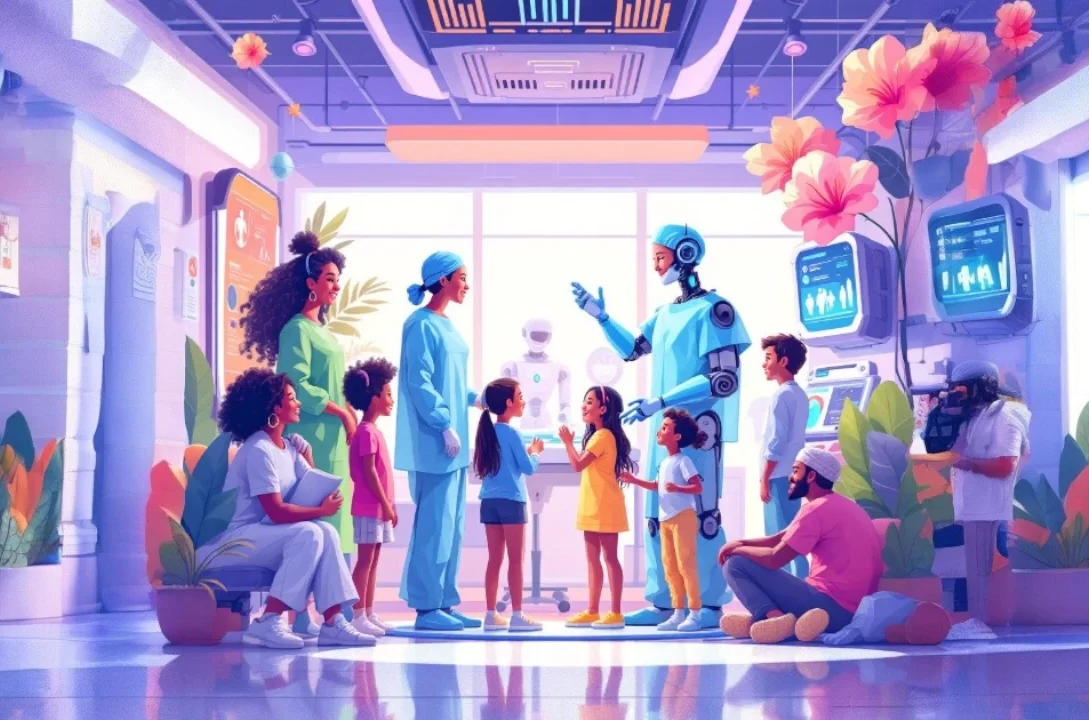For the first time in history, the average human lifespan is approaching 80 years—and it’s not just luck. Revolutionary advancements in medicine, technology, and preventive care are helping people live longer, healthier lives than any previous generation.
From AI-powered diagnostics to longevity diets, science is rewriting what it means to age well. In this article, we’ll explore the most impactful healthcare trends adding years to our lives—and how you can take advantage of them today.
The Science Behind Our Increasing Lifespans
Global life expectancy has jumped by over 6 years since 2000 (WHO). Here’s what’s driving this dramatic shift:
Key Factors Extending Longevity
- Medical breakthroughs (mRNA vaccines, CRISPR gene editing)
- Early disease detection (wearable health monitors, liquid biopsies)
- Preventive healthcare (personalized nutrition, fitness tech)
- Public health policies (reduced smoking rates, safer workplaces)
Did You Know? Japan’s Okinawa region has the world’s highest concentration of centenarians—thanks to diet, community, and healthcare access.
Trend #1: Precision Medicine – Healthcare Tailored to Your DNA
Gone are the days of one-size-fits-all treatments. Precision medicine analyzes your genes, lifestyle, and environment to create customized prevention plans.
How It’s Changing Healthcare
- Cancer treatment: Tumor DNA sequencing matches patients with targeted therapies.
- Pharmacogenomics: Tests predict which medications work best for your body.
- Disease risk forecasting: 23andMe-style tests reveal genetic predispositions.
Real Impact: Breast cancer survival rates have surged 40% due to personalized therapies (American Cancer Society).
Trend #2: The Rise of AI in Early Disease Detection
Artificial intelligence is spotting health threats years before symptoms appear:
AI’s Lifesaving Applications
- Retinal scans detecting early diabetes and Alzheimer’s markers
- Voice analysis identifying Parkinson’s disease through speech patterns
- ECG algorithms predicting heart attacks with 90%+ accuracy (Mayo Clinic)
Future Outlook: Your annual physical may soon include an AI health assistant reviewing thousands of data points in minutes.
Trend #3: The Longevity Diet Movement
Nutrition science has identified eating patterns that slow biological aging:
Top Evidence-Based Approaches
- Mediterranean diet: Rich in olive oil, nuts, and fish—linked to 20% lower mortality.
- Intermittent fasting: Promotes cellular repair (autophagy) and reduces inflammation.
- Polyphenol-rich foods: Berries, dark chocolate, and green tea protect cells.
Pro Tip: Blue Zones research shows adding 1/2 cup of beans daily extends lifespan more than any supplement.
Trend #4: Wearable Health Tech Goes Medical-Grade
Today’s smartwatches do far more than count steps:
Life-Extending Features
- FDA-cleared ECG detecting atrial fibrillation (Apple Watch)
- Blood glucose monitoring without needles (Abbott’s Libre)
- Sleep apnea screening via overnight oxygen tracking (Fitbit)
Stat That Matters: Patients using wearables have 34% fewer hospitalizations for chronic conditions (JMIR Studies).
Trend #5: The Mental Longevity Revolution
Brain health is now recognized as equally vital as physical health for longevity:
Emerging Neurohealth Strategies
- Digital cognitive therapies for early dementia prevention
- Psychedelic-assisted therapy showing promise for depression (FDA-approved ketamine treatments)
- Social connection tech combating isolation’s mortality risk (equivalent to smoking 15 cigarettes/day)
Breakthrough: Columbia University found bilingual adults develop dementia 4-5 years later.
How to Leverage These Trends Starting Today
Actionable Steps for a Longer Life
- Get sequenced: Explore genetic testing through services like Color or Nebula.
- Adopt one longevity food habit: Start with daily nuts or weekly fatty fish.
- Wear your health data: Choose a medical-grade wearable with ECG/SpO2.
- Schedule a ‘longevity physical’: Ask your doctor about biomarker testing (telomere length, inflammation markers).
FAQs About Modern Longevity
Can these trends really add years to my life?
Yes—studies show combining them can extend healthy lifespan by 7-10 years.
What’s the most underrated longevity habit?
Grip strength—it’s a better predictor of longevity than blood pressure (Lancet study).
Are longevity supplements worth it?
Only NMNA, omega-3s, and vitamin D have strong evidence—consult a doctor first.
How much does exercise impact lifespan?
Just 11 minutes daily reduces mortality risk by 23% (British Journal of Sports Medicine).
Will AI replace doctors for longevity care?
No—but it will empower doctors with unprecedented diagnostic tools.
The Future of Living Longer—and Better
By 2030, 90 may become the new 70 thanks to:
- Senolytics: Drugs that remove aging cells (human trials underway)
- Young blood transfusions: Early studies show rejuvenation potential
- Digital twins: Virtual replicas of your body for treatment testing
Final Thought: For the first time in human history, how long we live is becoming a choice—not just chance. Which of these trends will you adopt first?
Share this with someone you want to grow old with!
(Internal links: Best Wearables for Health Monitoring, Mediterranean Diet Meal Plan | External links: WHO Longevity Report, Blue Zones Research)















